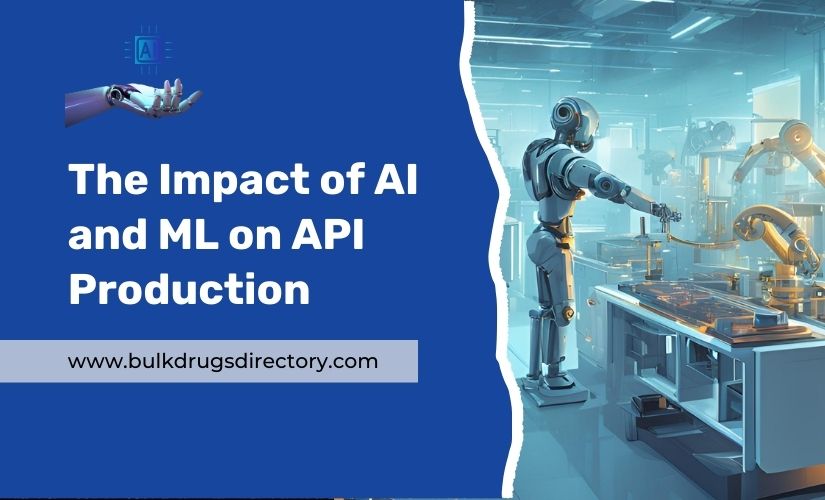
The Impact of Artificial Intelligence and Machine Learning on API Production
In recent years, the pharmaceutical industry has seen significant advancements, particularly in Active Pharmaceutical Ingredient (API) production. With the integration of Artificial Intelligence (AI) and Machine Learning (ML), the API manufacturing process is becoming more efficient, precise, and scalable.
In this article, we will explore how AI and ML are transforming API production, driving innovation, and optimizing processes for the pharmaceutical industry.
Key Takeaways of AI and ML in API production
- Efficiency and Precision: AI and ML technologies are significantly improving the efficiency and precision of API production, reducing human error, speeding up processes, and enhancing product quality.
- Faster API Development: AI-powered systems can analyze large datasets to optimize conditions for API synthesis, reducing the time needed for R&D and allowing for more efficient experimentation.
- Machine Learning for Process Optimization: ML models are being used to optimize every stage of API manufacturing, from predictive maintenance to anomaly detection and supply chain management.
- Quality Control Enhancement: AI and ML offer real-time monitoring and data-driven analysis, helping to improve quality control processes by detecting issues before they compromise the product.
- Automation in API Production: AI-driven automation is revolutionizing the pharmaceutical industry, leading to increased productivity, reduced costs, and more consistent product quality.
- Regulatory and Data Challenges: Despite the benefits, integrating AI and ML into pharmaceutical manufacturing poses challenges, such as ensuring regulatory compliance, data privacy, and access to specialized technical expertise.
- Future of AI and ML in Pharmaceuticals: As AI and ML technologies evolve, their role in API production will continue to expand, driving innovation, improving drug development timelines, and reducing manufacturing costs.
Table of Contents
- Key Takeaways of AI and ML in API production
- 1. AI and ML in API Production: A Game-Changer for Pharmaceuticals
- 2. AI-Powered API Development: Faster and More Efficient
- 3. Machine Learning in Drug Manufacturing: Data-Driven Innovation
- 4. AI and ML in API Quality Control
- 5. The Role of AI and ML in Pharmaceutical Automation
- 6. Overcoming Challenges in AI and ML Integration
- Conclusion: The Future of AI and ML in API Production
1. AI and ML in API Production: A Game-Changer for Pharmaceuticals
Artificial Intelligence (AI) and Machine Learning (ML) have proven to be powerful tools in various industries, and the pharmaceutical sector is no exception. These technologies offer enhanced data analysis capabilities and automation, which are critical for the complex and highly regulated process of API production.
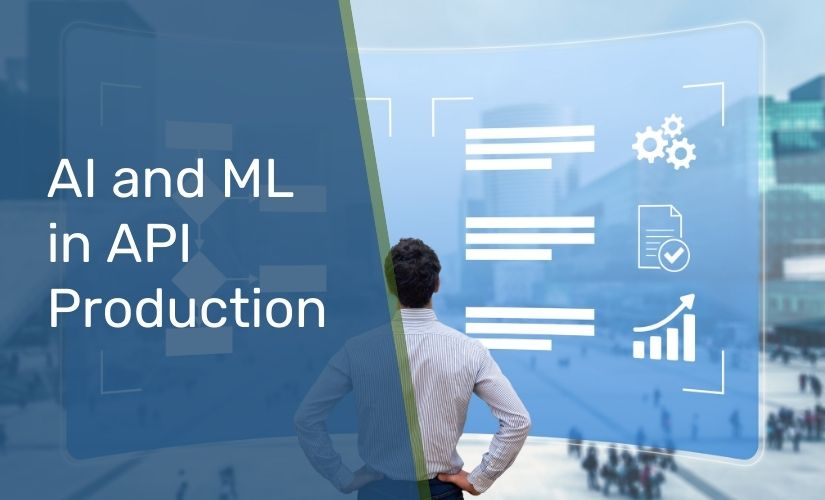
Key benefits of AI and ML in API production include:
- Improved Process Efficiency: AI-driven systems can automate various stages of the API production process, reducing human error and increasing speed. This leads to shorter production cycles and greater cost-effectiveness.
- Enhanced Precision: Machine learning algorithms help in monitoring real-time data to ensure precision in API formulation. This leads to more consistent results and fewer deviations during the production process.
- Predictive Maintenance: AI systems can predict when equipment may fail or need maintenance, reducing downtime and improving overall productivity.
2. AI-Powered API Development: Faster and More Efficient
The development of APIs is a critical stage in drug manufacturing. AI can significantly shorten the development timeline by analyzing vast datasets to predict optimal conditions for API synthesis. This data-driven approach allows pharmaceutical companies to experiment with different molecular structures, conditions, and production techniques before they even begin the physical synthesis process.
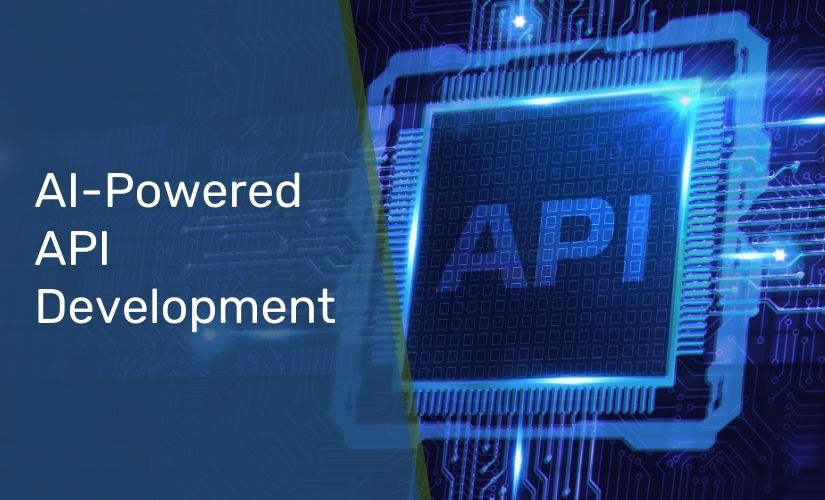
Examples of AI in API development include:
- Molecular Simulation: AI-driven tools can simulate molecular interactions to identify the most effective ways to produce APIs. This reduces the time spent in traditional trial-and-error experimentation.
- Optimization of Reaction Conditions: Machine learning algorithms can predict optimal reaction conditions (e.g., temperature, pressure, solvent choice) for API synthesis, saving time and resources during R&D.
3. Machine Learning in Drug Manufacturing: Data-Driven Innovation
In the highly regulated pharmaceutical environment, maintaining product quality and regulatory compliance is paramount. Machine learning plays a pivotal role in ensuring that API production stays within the stringent guidelines laid out by regulatory bodies. By analyzing historical production data and real-time sensor inputs, ML models can optimize each step of the API production process.
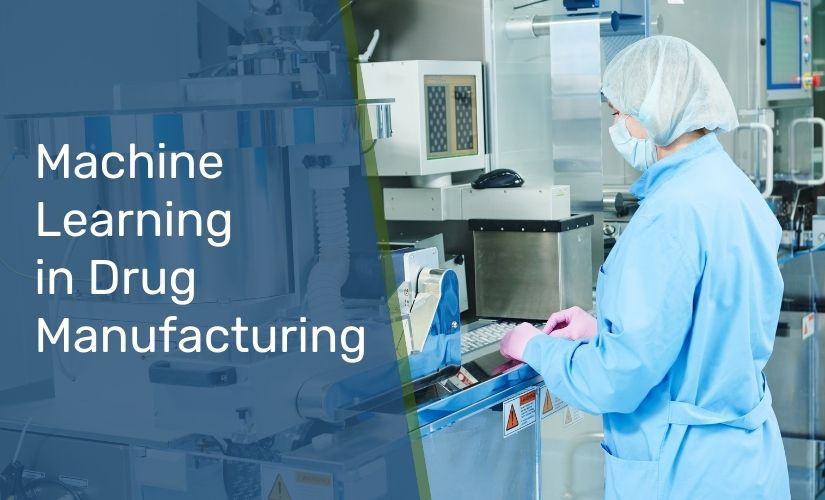
Applications of ML in API manufacturing include:
- Predictive Analytics: ML models can forecast future trends based on historical data, enabling manufacturers to proactively adjust production parameters to avoid costly deviations.
- Anomaly Detection: Machine learning algorithms can detect subtle variations in production that may lead to quality issues, allowing for corrective actions before a batch is compromised.
- Supply Chain Optimization: ML is also used to manage supply chains effectively by predicting demand, optimizing inventory, and reducing waste.
4. AI and ML in API Quality Control
Quality control is one of the most critical aspects of API production. AI and ML are helping pharmaceutical companies enhance their quality control processes by enabling real-time monitoring and data-driven decision-making.
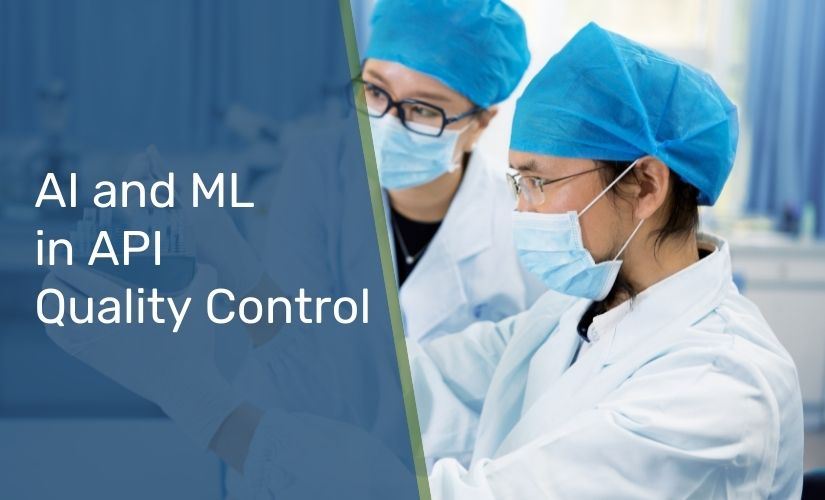
Key areas where AI and ML enhance quality control:
- Real-time Monitoring: AI systems can monitor critical parameters like temperature, pH, and pressure throughout the production process, ensuring optimal conditions are maintained.
- Data-Driven Analysis: Machine learning can analyze large sets of production data to identify patterns that indicate potential issues, improving quality control accuracy.
- Automated Reporting: AI can automatically generate reports based on quality checks, making the process faster and more consistent, while ensuring regulatory compliance.
5. The Role of AI and ML in Pharmaceutical Automation
Automation is a significant trend in the pharmaceutical industry, and AI and ML are at the forefront of driving this transformation. AI-powered robotic systems can take over repetitive tasks, allowing skilled workers to focus on more complex operations.
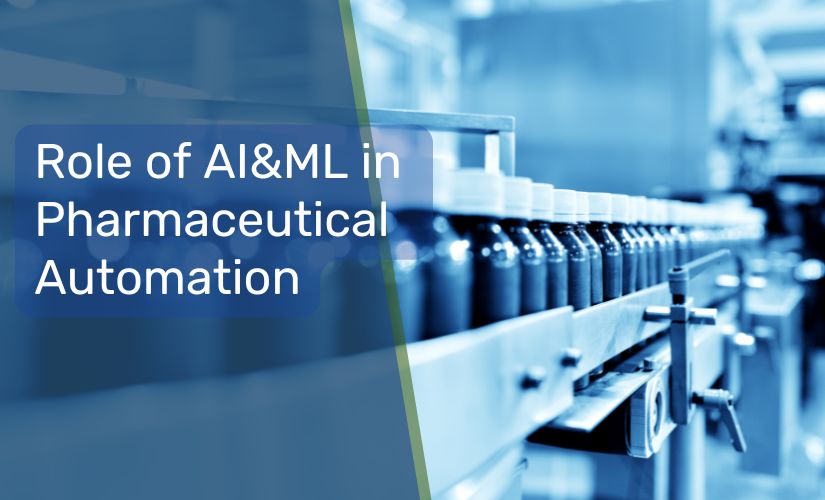
Benefits of AI-powered automation in API production:
- Increased Productivity: Automated systems powered by AI can run continuously with minimal human intervention, increasing overall production capacity.
- Reduced Costs: Automation helps reduce labor costs, energy consumption, and raw material waste, leading to significant savings for pharmaceutical companies.
- Consistent Quality: AI-powered automation ensures consistent product quality by minimizing human error and maintaining optimal production conditions.
6. Overcoming Challenges in AI and ML Integration
Despite the numerous advantages of AI and ML in API production, integrating AI and ML into API production comes with challenges. Pharmaceutical companies must address issues such as data security, regulatory compliance, and the need for specialized knowledge to develop and maintain AI-driven systems.
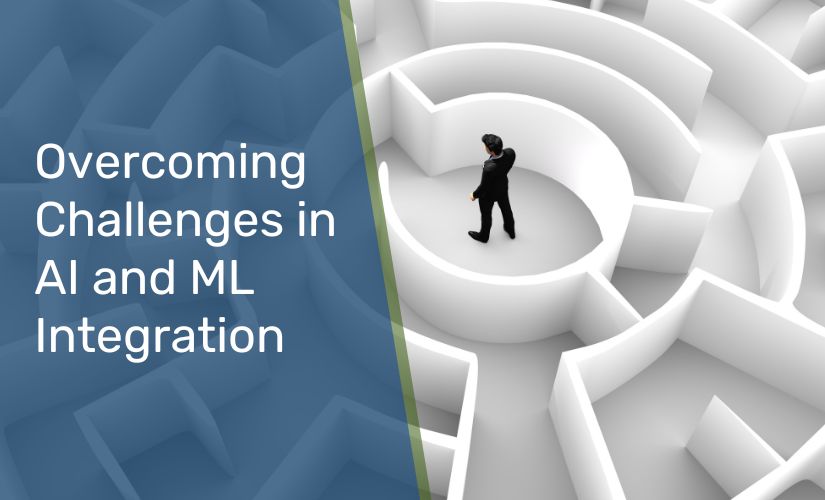
Key challenges include:
- Data Privacy: AI systems rely on large datasets, and ensuring data privacy and compliance with regulations like GDPR is critical.
- Regulatory Approval: Gaining approval from regulatory bodies like the FDA for AI-driven processes requires stringent validation and transparency in how AI models are trained and used.
- Technical Expertise: Developing and maintaining AI and ML systems requires specialized knowledge that may not be readily available in traditional pharmaceutical companies.
Conclusion: The Future of AI and ML in API Production
The integration of AI and ML in API production marks a significant shift toward a more efficient and innovative pharmaceutical industry. From optimizing development processes to ensuring consistent quality and automating production, AI and ML are poised to revolutionize how APIs are produced.
As technology continues to advance, we can expect AI and ML to play an even larger role in pharmaceutical manufacturing, leading to faster drug development, higher product quality, and cost savings across the industry.
Are you ready to leverage the power of technology in your pharmaceutical business? Explore how to incorporate AI and ML in API production to enhance efficiency and drive innovation. Start your journey toward a successful pharmaceutical future today!


